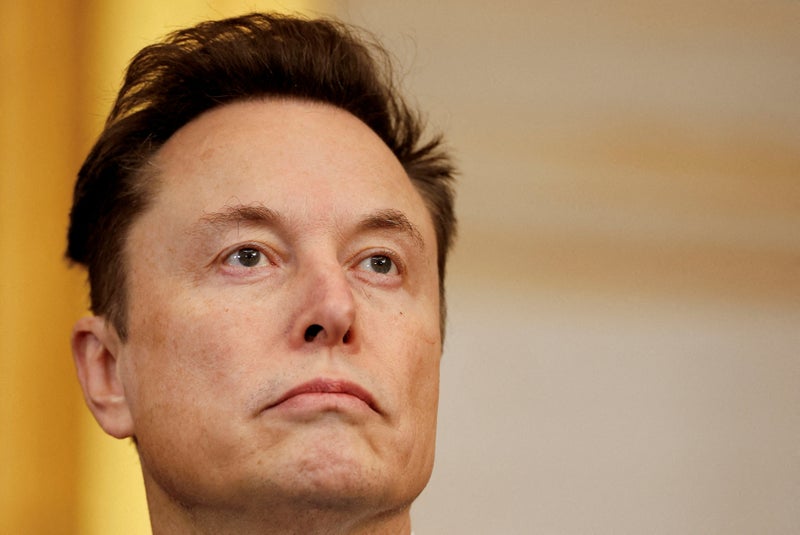Trump and Musk’s foreign aid funding freeze sends geopolitical shock waves across the world, causing chaos and confusion among beneficiaries. Copy link. twitter. facebook. whatsapp. Donald Trump and his right-hand man Elon Musk have frozen large sums of foreign aid and taken an axe to America’s vast international aid agency – USAID. In recent days, Mr Musk has called the agency “a viper’s nest of radical-left marxists who hate America” and a “criminal organisation”. He has said it is “beyond repair” and has boasted of “feeding USAID into the wood chipper” as jobs have been cut and aid put on hold.
He alleges the agency has been wasting huge sums of US tax money, and has been pouring funding into left-wing anti-American causes. The spectacle has thrilled many of Mr Trump’s supporters, has sent geopolitical shock waves across the planet, and caused consternation among its many beneficiaries. Some fear that leadership of the global effort to stamp out extreme poverty and build new markets – a major driver of global growth over the last 70 years – is about to switch to China or come to an end.
America has the largest foreign assistance programme in the world, and its spending makes up roughly 40 per cent of all global foreign aid. The US spent $72bn (£58bn) in 2023, roughly 1.2 per cent of the federal budget, compared to a defence budget of more than $820bn (£662bn). That spend is twice what Germany spent and five times what the UK spent, according to the Organisation for Economic Co-operation and Development.
Most of that foreign assistance spend, about three-fifths of the total, passes through USAID, and it is this agency which has been singled out to bear the brunt of Mr Musk’s anger. The United States Agency for International Development (USAID) is America’s main federal agency providing foreign aid to the rest of the world. The agency was set up by President John F Kennedy in 1961, at the height of the Cold War when America was trying to counter Soviet influence, as an umbrella for all foreign aid.
Continuing a tradition of American largesse going back to the Marshall Plan to rebuild Europe after the Second World War, Kennedy said America needed the agency to fulfil its moral, political and economic obligations to the rest of the world. Spending money to ensure a stable, prosperous, free world was in America’s interests, he argued. At the start, US foreign assistance spending was very much focused on worn-torn Europe – by investing to raise health and education levels on the continent, the US built vast markets to sell into.
USAID has since grown into a titan of soft power, employing more than 10,000 people across the world and distributing aid to some 130 countries. In 2023, USAID funded $43bn (£35bn) of programmes. USAID’s reach is vast and it funds programmes in some 130 countries. The biggest recipients in 2023 were Ukraine, which was given $16.4bn (£13.2bn).Ethiopia was given $1.4bn (£1.1bn), Jordan received $1.2bn (£1.0bn), Somalia received $1bn (£0.8bn) and the Democratic Republic of Congo got $0.9bn (£0.7bn).
It is not only poor countries that get money. Israel got $5.3m (£4.3m) in 2023, Ireland got $3m (£2.4m) and Germany got $15m (£12.0m). USAID funds a huge spread of projects, ranging from humanitarian aid needed after natural disasters, to grassroots health projects and medical research, providing clean water, boosting agriculture, or education. In a continuation of its roots during the Cold War, it also spends money on projects aimed at strengthening democracy, civil society and the media.
Around a quarter of the 2023 money ($9bn or £7bn) went to emergency humanitarian assistance. Some $17bn (£14bn) went to governance programmes and some $7bn (£6bn) came under the heading of ‘health and population’. Polls have long shown Americans broadly split on foreign aid. A 2019 survey found that 35 per cent wanted to increase economic aid to the needy, 33 per cent wanted to keep it the same, and 28 per cent wanted to decrease it.
However, surveys find that goals like stopping terrorist attacks and drug trafficking, curbing Chinese influence or preventing infectious diseases are seen as far higher foreign policy priorities than promoting human rights or democracy. The agency finds itself as a punchbag on the wrong side of several of the new president’s touchstone themes. Before the election he vowed to cut wasteful federal spending and he has criticised the agency as a spendthrift Washington behemoth run by unaccountable bureaucrats.
He is also a long term critic of overseas spending, saying he is tired of foreign interventions and fed up with American generosity being taken for granted. He has promised to instead put ‘America First’ and focus on domestic matters. Moreover, he has argued that programmes addressing issues like climate change, or diversity, equity and inclusion (DEI), are un-American. Mr Trump said last week that USAID’s spending “is totally unexplainable…close it down!”.































